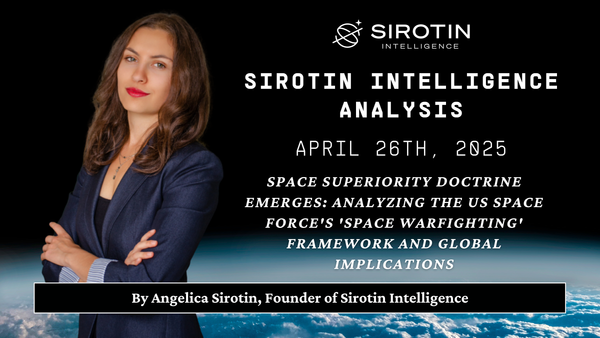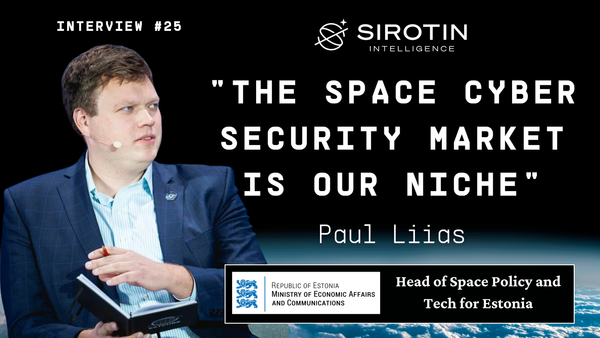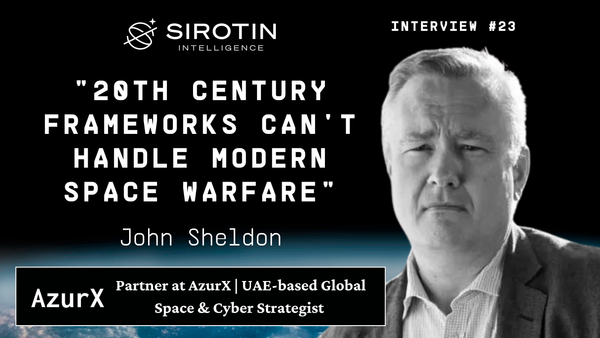"Every Country Has a Border with Space": UK Space Agency CEO Dr. Paul Bate on Britain's Shetland Islands Launch Advantage, £18.9 Billion Industry Growth, and the New Space Age Inflection Point
Discover how UK Space Agency CEO Dr. Paul Bate is positioning Britain as a global space launch leader—from Shetland’s strategic location to a booming £18.9B industry.
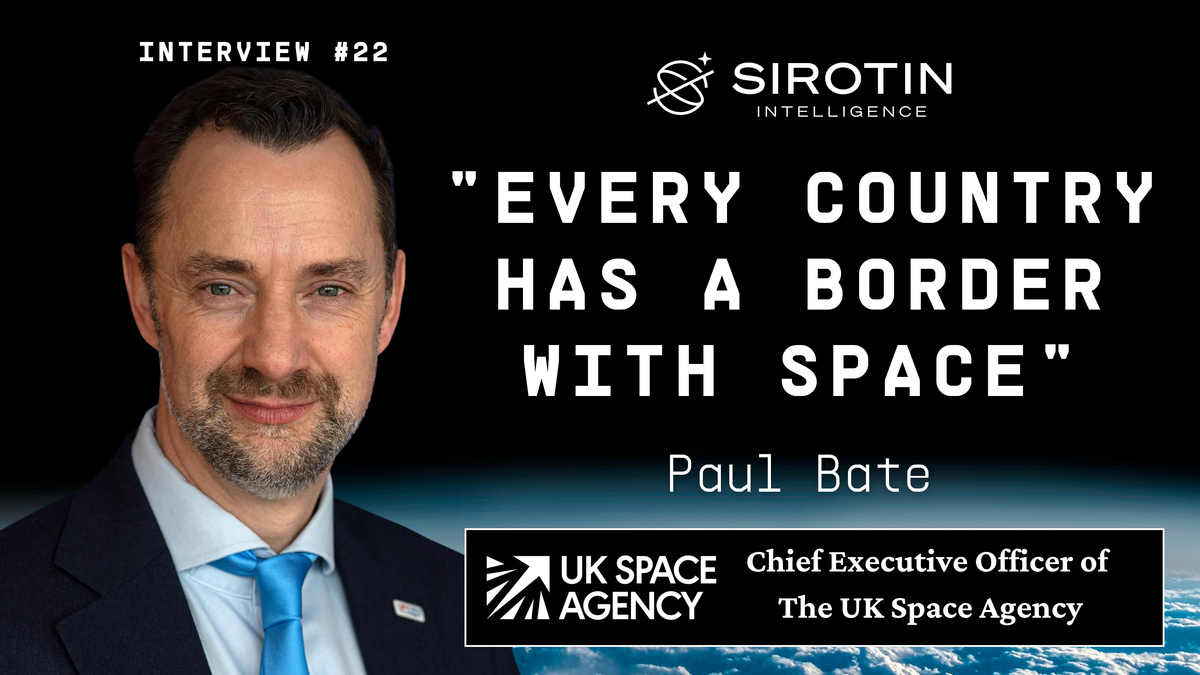
On the windswept northern tip of the Shetland Islands, where salt-laden gales have for centuries battered Scotland's rugged coastline, a silent revolution is taking shape. Here, where oil and gas workers once dominated the industrial landscape, new infrastructure rises against the steel-gray North Sea horizon—Britain's northernmost gateway to the stars. This is where UK Space Agency CEO Dr. Paul Bate envisions rockets thundering skyward over Arctic waters, carrying satellites into polar orbits along pathways no other European nation can match. A physicist by training who spent two decades in healthcare before returning to his first love, Bate now oversees Britain's ambitious £18.9 billion space strategy from these remote shores to the bustling spaceport in Cornwall.
This exclusive interview reveals how Britain is leveraging its unique geography, regulatory environment, and skilled workforce to transform itself into a launch powerhouse in the rapidly evolving global space economy.
What specifically drew you to the space sector, and was there a pivotal moment that sparked your interest in leading the UK Space Agency?
“Space, for me, is a bit like coming home,” Bate says with clear enthusiasm. “As a teenager, I was besotted with sci-fi—pretty eclectic in my tastes. Doctor Who was huge in the UK, which you may know more broadly as well. I spent more time than I probably should have watching and reading it.”
His academic journey cemented this passion. “I studied physics and astrophysics at university. My PhD was in physics as well.”
Despite this strong foundation, his career took an unexpected detour. “I got sidetracked for about 20 years working in healthcare, which was great fun and very exciting.”
The pivot back to space came in a serendipitous moment. “When I saw the UK Space Agency job—or, rather, when my older brother sent it to me—he gave me a push, saying, ‘Isn’t this what you’ve always wanted to do?’ He was absolutely right.”
His eyes light up as he explains why the role resonates so deeply. “This is a job I can pursue not just on a professional level, but also on a deeply personal one. It matters to me. It matters to society. Future generations will judge us partly by how we use space—how we steward it, bring its benefits home to Earth, and use that unique environment to understand the universe. That excites me.”
Given your background in particle physics, how do you see the intersection between fundamental physics research and practical space applications influencing the UK's space strategy over the next decade?
Bate sees a uniquely tight connection between scientific discovery and commercial applications in the space sector.
"There's this tight circle in space that I haven't seen in other sectors," he explains. "You've got cutting-edge discovery science—space exploration, Earth observation—but it's closely connected to the same companies and technologies that quickly become commercial applications."
He gives a practical example: "The ability to see further and more clearly with telescopes—along with the imaging hardware and software—becomes really valuable for commercial companies."
This connection, he notes, is especially strong in the space sector. "While there's usually some link between curiosity-driven science and how it eventually makes its way into business, it's much tighter in space. Often the same people are involved in both sides. The boundary is really fluid."
To make his point, Bate shares a telling example: "My investment director at the UK Space Agency, who handles our commercial space portfolio, actually started his career as a space scientist designing a Mercury mission, working with X-rays. He's a perfect example of how science and business overlap in this sector."
The UK Space Agency has been working on establishing multiple spaceports across the UK. How do you envision these facilities transforming the UK's position in the global launch market, and what unique advantages does the UK offer compared to established launch providers?
"Launch capability is central to our national space strategy," Bate says, gesturing toward a map of the UK. "Being an island nation gives us a distinct advantage for certain types of launches. Particularly from our northernmost site on the Shetland Islands, which sits above mainland Scotland."
He explains the geographical advantage with clear enthusiasm. "When you launch north from the Shetland Islands into polar orbit, you travel over the Arctic, across the North Sea, and down through the Pacific. That's an enormous stretch of open water below your flight path. For companies needing polar or sun-synchronous orbits, this is an incredibly valuable launch corridor that few other locations in Europe can offer."
Beyond geography, Bate highlights the UK's regulatory framework. "We've developed a stable, business-friendly regulatory system since 2018 that supports both safety and commercial viability. Companies can see it works because we've already conducted successful launches from Cornwall. The system is proven and transparent."
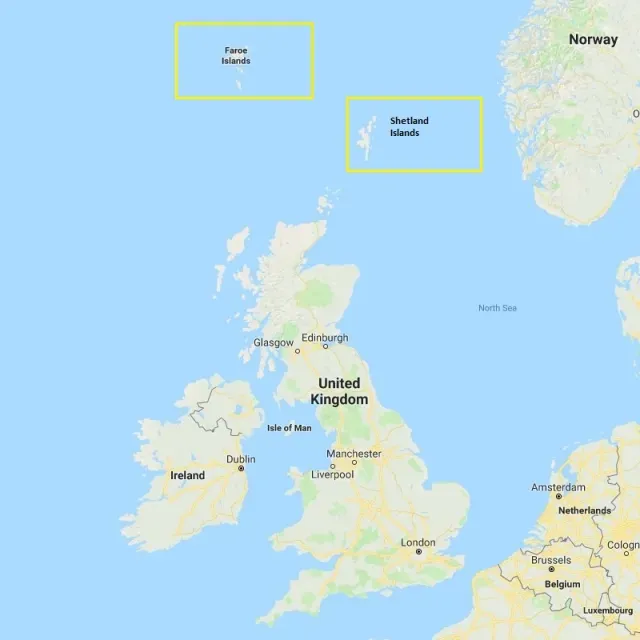
The local workforce, he points out, offers another key advantage. "The Shetland Islands and northern Scotland have generations of experience building complex infrastructure in challenging environments. These communities have worked with hazardous materials and difficult conditions through decades of oil and gas development. That skilled workforce has been invaluable in efficiently developing our spaceport facilities."
Bate describes the broader ecosystem taking shape around these launch sites. "Beyond the spaceports themselves, we're cultivating relationships with both UK-based launch companies like Orbex and Skyrora, and international partners like Rocket Factory Augsburg and HyImpulse. All are planning to launch from British soil."
The market outlook is promising. "We're seeing growing interest from launch providers who want to use our facilities, and from satellite operators who need to deploy their payloads. The ecosystem is developing nicely. I'm confident there's enough market demand to support multiple launch operators and spaceports, with UK-based launches being the ideal solution for many companies, whether they're British or international. Our doors are open to all."
Under your leadership, how is the UK Space Agency balancing commercial interests with scientific exploration, particularly in light of the UK-Australia Space Bridge collaboration and similar international partnerships?
"Balance is built into our fundamental purpose," Bate says, indicating a framed mission statement. "Our agency has three core aims: boosting UK prosperity, understanding the universe, and protecting both our planet and outer space. Starting with this balanced purpose helps us avoid leaning too heavily in any single direction."
He outlines their investment philosophy. "We see ourselves as catalysts. We don't just fund missions or advance technology—though that's important. We invest in companies and research groups in ways that help them go further than they could alone. Our funding should unlock additional resources and opportunities."
The commercial side is vital, but not exclusive. "Obviously, we want to help UK space companies grow their revenues and attract outside investment. That's a key part of our role. But we never lose sight of the broader value that space brings, which connects back to that circle of discovery and application."
Scientific missions remain central to their strategy. "We continue to invest substantially in discovery—Earth observation, space science, exploration—because these create tremendous value for society. But they also drive innovation and commercial opportunities. The relationship between science and business is symbiotic in space."
International collaboration, Bate emphasizes, is essential. "Space is inherently international and incredibly resource-intensive. Partnerships allow us to share costs while combining complementary capabilities. That's why we established the Space Bridge with Australia five years ago and why we're a founding member and major contributor to the European Space Agency. These connections strengthen both our scientific and commercial positions."
With your experience in both public service and private sector leadership at Babylon Health, what lessons have you applied to foster innovation and growth within the UK's space industry?
"I've spent time in both worlds," Bate reflects. "Slightly more in the commercial sector than in public service, but I've seen both sides. The first lesson I've learned is that the supposed gap between public and private isn't as wide as people think. The variation between different companies in the private sector is actually greater than the difference between public and private organizations. Excellence can exist in both."
He emphasizes a critical insight about innovation. "In the space sector, there's sometimes a tendency to focus too much on the supply side—the amazing technology we can build. And the technology truly is remarkable. But that's not enough."
From his commercial experience, particularly at Babylon Health, Bate extracted a crucial principle. "What I learned as a salesperson is that success starts with understanding what customers actually need. We can't expect customers to understand all the technical details or know exactly what solutions might work for them."
This customer-first approach now informs his leadership at the Space Agency. "We're constantly asking how space can solve problems for different users—government agencies, security organizations, retailers, financial services, agricultural producers. Starting with the customer's needs rather than the technology keeps us focused on creating real value. That's something I brought from the private sector that helps us avoid the trap of developing impressive technology that doesn't solve real problems."
As someone who has advised two Prime Ministers and now leads a team of over 300 professionals at the UK Space Agency, what do you see as the most critical space-related challenges facing the UK government that require immediate attention?
"We're at a pivotal moment," Bate states thoughtfully. "For most space-capable nations, including the UK, the reality is that we're already deep into the space age. This isn't some future scenario—we depend on space daily for navigation, communication, weather forecasting, and managing climate change."
He highlights the accelerating pace of development. "We're at an inflection point where the value and applications of space are expanding rapidly across multiple domains—security, climate monitoring, autonomous transportation, ubiquitous connectivity. Space underlies so much of our technological infrastructure, and this dependence will only increase."
This evolution presents governments with a fundamental challenge. "The key question is how to maximize these benefits for our societies and economies. While growing the space sector is important, it's not an end in itself. The space industry should expand because it delivers broader value to national and global economies. Much of what happens in space necessarily involves international cooperation."
For the UK specifically, Bate sees solid foundations to build upon. "We're fortunate to have excellent geographic advantages, a well-designed regulatory system, world-class academic institutions, and a vibrant ecosystem of innovative small and medium enterprises. Someone recently mentioned that there are more UK companies registered with the European Space Agency than from any other European country—a testament to our commercial dynamism."
The path forward requires balancing competition and collaboration. "We need to be globally competitive as space becomes increasingly commercialized. But we must also strengthen our long-standing international partnerships and develop new ones, including with nations that have less space heritage but stand to benefit greatly from space technologies."
Bate concludes with a sense of urgency. "The inflection point means that past approaches won't necessarily work for the future. We need to adapt now, because the rest of the world isn't waiting. This is the moment to shape the next era of space development."
As we witness increasing space activities from China, including their space station, lunar missions, and expanding satellite constellations, how do you view the UK's strategic relationship with China in space? What approach is the UK Space Agency taking to balance potential collaboration opportunities with national security considerations in this complex geopolitical landscape?
"The UK Government takes a consistent, long-term strategic approach to relations with China," Bate explains carefully. "It's based on both UK and global interests. We cooperate where possible, compete where necessary, and challenge when required."
Global challenges necessitate collaboration. "The reality is that we can't address some of our biggest global challenges without cooperation, and that has to happen globally. Net Zero is a clear example of that, as is the climate emergency. We recognize that solutions to many of these global challenges are rooted in how we use space."
This creates a need for balanced international engagement. "That's why international relationships are so important to us, but at the same time, we have to maintain very robust measures to safeguard security. The balance is essential."
With China specifically, Bate outlines limited cooperation. "We collaborate on one particular mission, the SMILE mission. It's a Solar Magnetospheric Ionospheric mission, and we do that through the European Space Agency. We're one of the contributing partners, and we've established clear boundaries for that collaboration. This allows us to fund various UK academic institutions to provide scientific instrumentation for the mission."
This approach reflects broader government strategy. "Whenever we're looking at how we work with other countries, we work as a government. We have a comprehensive national security infrastructure, like many countries do, and the important thing is that our activities in space are part of that coherent whole. Everything we do in space aligns with our broader strategic interests."
When asked about the inherently shared nature of orbital space, Bate offers a thoughtful perspective. "Any satellite in polar orbit passes over every part of Earth—every country literally has a border with space. It's a global commons, as are the Moon and other celestial bodies. This reality creates both an obligation to cooperate and a need to establish clear norms of behavior that everyone respects."
He references a concerning precedent, carefully distinguishing it from China. "Russia's anti-satellite test in 2021 violated established norms and endangered satellites in low Earth orbit, where both astronauts and cosmonauts work. Such actions threaten everyone's access to space."
Bate concludes with a principle that guides his approach: "Clear norms and responsible behavior are essential, but so is international collaboration. Being a good partner in space exploration is fundamental to our strategy."
As our conversation ends, he leaves us with a final insight: "We firmly believe that space is a team sport. We understand our specific role, but success ultimately comes through working together." It's a reminder that despite growing competition in space, cooperation may still be our most powerful approach to the final frontier.
About Paul Bate
Paul Bate has been CEO of the UK Space Agency since September 2021. He leads a team of more than 300 who provide the R&D funding to use space to increase prosperity across the world, protect the planet, and to understand the universe.
Prior to space, Paul ran global sales at Babylon Health, which floated on the New York Stock Exchange in 2021, and built a consultancy business.
Paul was David Cameron’s senior health adviser in Downing Street and led on health targets and finances in Tony Blair’s Delivery Unit. Paul holds a PhD in Particle Physics.



